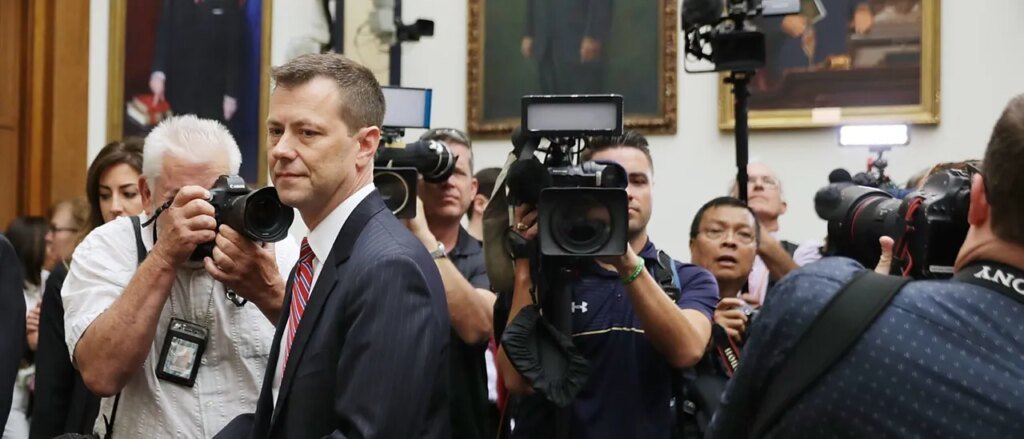DOJ Officials Linked to Settlement for Controversial FBI Employees
A recent report indicates that officials within the Department of Justice (DOJ) who approved a $2 million settlement for FBI employees Peter Strzok and Lisa Page—who faced allegations of political bias during the 2016 Trump-Russia investigation—are identified as left-wing activists. This development emerges alongside scrutiny of the anti-Trump text messages exchanged between Strzok and Page.
Former Associate Deputy Attorney General Brian Netter played a central role in green-lighting this settlement, tied to a Freedom of Information Act (FOIA) request from a security advocacy organization. The Federalist highlights this revelation.
During his tenure under Attorney General Merrick Garland, Netter had previously worked as legal director for a group called Democracy Forward, which claims to advocate for democracy and social progress through legal initiatives. This group has notably been involved in litigation concerning election laws post-2020.
Interestingly, while working for Garland, Netter opposed Trump’s efforts to block the release of presidential records related to the January 6th committee. In a somewhat personal twist, it was also Garland who officiated Netter’s wedding, a detail that perhaps underscores the intertwining of personal and professional lives in politics.
Strzok and Page found themselves at the center of controversy due to their private messages, which were deemed a violation of privacy when leaked in 2017. Their communications included remarks that criticized Trump and discussed concerns about potential political outcomes, such as referring to an “insurance policy” against his election, which they believed was an unlikely scenario. Such texts prompted further examination of their conduct during a politically charged investigation.
The settlement reached has been reported with Strzok receiving $1.2 million and Page $800,000. This situation continues to spark discussions about the motives and actions of officials during a highly scrutinized period in American politics.







